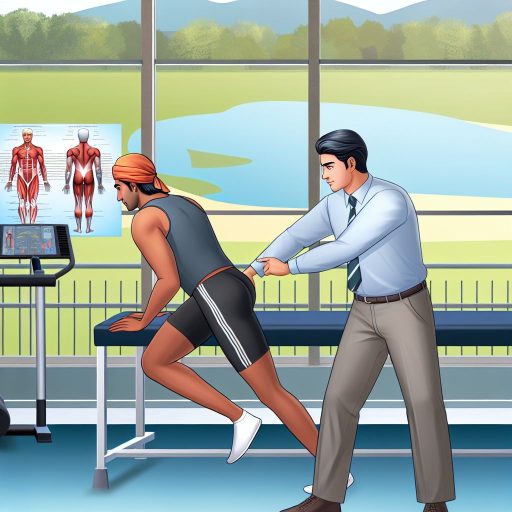Understanding Hearing Loss: Causes and Types
Common Causes of Hearing Loss
Hearing loss can stem from various causes including age-related factors.
Moreover, exposure to loud noises can significantly impact hearing ability.
Infections, such as otitis media, can also lead to temporary or permanent loss.
Certain medications may have ototoxic effects, causing hearing impairment.
Additionally, genetic predispositions can make individuals more vulnerable.
Types of Hearing Loss
Hearing loss generally falls into three categories: conductive, sensorineural, and mixed.
Conductive hearing loss occurs when sound waves cannot efficiently travel through the outer ear.
This type often results from blockages or malfunctions in the ear canal or middle ear.
Sensorineural hearing loss arises from damage to the inner ear or auditory nerve.
This type can be permanent and is often age-related or noise-induced.
Mixed hearing loss combines features of both conductive and sensorineural hearing loss.
Recognizing Symptoms of Hearing Loss
Individuals may experience difficulty understanding conversations in noisy environments.
Others might frequently ask people to repeat themselves.
Additionally, a feeling of fullness in the ear can signal potential issues.
Furthermore, individuals may notice they frequently turn up the volume on devices.
Importance of Early Detection
Early detection of hearing loss is crucial for effective management.
It allows for timely intervention, which can improve overall quality of life.
Regular hearing tests with an audiologist can help in identifying problems early.
The Role of Audiologists in Hearing Health
Expertise in Hearing Disorders
Audiologists specialize in diagnosing hearing disorders.
They use advanced technology for precise evaluations.
Moreover, they possess extensive knowledge of ear health.
This expertise allows them to identify specific types of hearing loss.
Furthermore, they remain updated on the latest research in audiology.
Personalized Care and Treatment
Audiologists offer personalized care tailored to individual needs.
They assess each patient’s unique hearing capabilities.
Unlock Your Career Potential
Visualize a clear path to success with our tailored Career Consulting service. Personalized insights in just 1-3 days.
Get StartedAfter the assessment, they recommend appropriate treatments.
These may include hearing aids, therapy, or lifestyle adjustments.
Additionally, they educate patients about hearing protection strategies.
Preventative Measures
Preventing hearing loss requires proactive efforts.
Audiologists promote regular hearing evaluations for all age groups.
They also provide guidance on safe listening practices.
For instance, they suggest using earplugs in noisy environments.
Moreover, they encourage limiting exposure to loud sounds.
Community Awareness and Education
Audiologists play a significant role in community education.
They conduct workshops to raise awareness about hearing health.
Through campaigns, they inform the public about hearing loss risks.
Additionally, they foster understanding about the importance of early intervention.
Community outreach helps reduce the stigma surrounding hearing devices.
Importance of Regular Hearing Check-Ups
Maintaining Overall Health
Regular hearing check-ups are vital for maintaining overall health.
Hearing loss can signal other health issues.
Addressing it promptly can enhance your quality of life.
Early Detection of Hearing Issues
Early detection of hearing problems leads to better outcomes.
Symptoms often develop gradually, so vigilance is important.
Annual check-ups help identify changes before they worsen.
Personalized Care from Audiologists
Audiologists provide tailored solutions to meet individual needs.
They assess your hearing thoroughly and recommend appropriate treatments.
This personalized approach supports effective management of hearing health.
Preventive Strategies and Management
Audiologists advise on protective measures to prevent hearing loss.
They might suggest hearing protection for noisy environments.
Additionally, they provide tips on maintaining ear health.
Staying Informed About Technological Advances
The field of audiology continuously evolves with new technology.
Regular visits ensure you stay updated on innovative solutions.
New hearing aids and therapies can significantly improve hearing.
Building Strong Communication Skills
Regular check-ups reinforce communication strategies.
Audiologists can recommend exercises to enhance auditory skills.
These practices support better interactions in daily life.
Delve into the Subject: Benefits of Working with a Certified Kinesiologist
Preventative Strategies for Hearing Loss in Different Age Groups
Children
Protecting children’s hearing is essential for their development.
Encourage them to wear headphones that limit volume.
Check their devices for volume-limiting features.
Teach them about the importance of ear protection.
Limit exposure to loud noises, especially in recreational settings.
Teenagers
Teenagers often expose themselves to loud music at concerts.
Educate them on the risks of prolonged loud sound exposure.
Encourage them to use earplugs at concerts and parties.
Promote regular hearing check-ups to catch potential issues early.
Discuss the dangers of using earbuds for extended periods.
Young Adults
Young adults may engage in noisy work environments.
Identify occupations that require hearing protection.
Encourage the use of noise-cancelling headphones during travel.
Promote regular and proactive hearing assessments.
Discuss lifestyle changes to limit noise exposure, such as quieter hobbies.
Middle-Aged Adults
Hearing loss can start to occur in middle age.
Regular hearing screenings become increasingly important.
Advise on using protective gear while doing household repairs.
Discuss the importance of maintaining overall health for ear health.
Encourage communication about hearing loss within relationships.
Seniors
Seniors are more likely to experience hearing loss due to age.
Promote regular check-ups to monitor hearing changes.
Encourage using hearing aids or assistive listening devices.
Discuss strategies for enhancing communication with others.
Advise on creating quieter home environments to aid hearing.
See Related Content: Understanding The Role Of A Chiropractor In Healthcare
Impact of Noise Pollution on Hearing and How to Mitigate It
Understanding Noise Pollution
Noise pollution significantly affects millions of people worldwide.
It originates from various sources such as traffic, construction, and industrial activities.
This constant exposure can lead to serious hearing issues.
Ultimately, it may result in irreversible hearing loss.
The Effects on Hearing Health
Chronic exposure to loud noise damages the delicate structures within the ear.
It can lead to conditions such as tinnitus or permanent threshold shifts.
Tinnitus manifests as a ringing or buzzing in the ears.
Furthermore, these conditions can affect overall quality of life.
Identifying Risk Factors
Some individuals are more susceptible to noise-induced hearing loss.
Occupational hazards frequently place workers in loud environments.
Musicians and construction workers are prime examples.
Additionally, recreational noise exposure from loud concerts can be dangerous.
Strategies for Mitigation
Employing proactive measures can significantly reduce noise exposure.
Using hearing protection, like earplugs or earmuffs, is effective.
Avoiding loud environments whenever possible is also beneficial.
Moreover, lowering the volume when using headphones can help preserve hearing.
Seeking Professional Guidance
Audiologists provide valuable insights into hearing health.
Regular hearing evaluations are essential for early detection.
They can recommend personalized hearing protection solutions.
Moreover, they offer resources for managing noise exposure effectively.
The Importance of Awareness
Raising awareness about noise pollution is crucial for community health.
Educational initiatives can equip individuals with essential knowledge.
Encouraging local policies to limit noise pollution enhances public wellbeing.
By working together, we can create quieter, healthier environments.
Explore Further: Exploring Career Paths in Kinesiology Across Canada

Resources and Tools Audiologists Recommend for Hearing Protection
Understanding Hearing Protection Devices
Hearing protection devices are essential for preserving auditory health.
Types of devices include earmuffs and earplugs.
Each option offers unique benefits depending on the situation.
For instance, earmuffs are great for high-noise environments.
Conversely, earplugs are more discreet and portable.
Choosing the Right Earplugs
When selecting earplugs, consider custom-fitted options.
These provide a snug fit and better noise isolation.
Standard foam earplugs are an affordable choice as well.
They are widely available and easy to use.
Make sure to check the Noise Reduction Rating (NRR) for effectiveness.
Investing in Earmuffs
Earmuffs come in various styles suitable for different activities.
For example, electronic earmuffs allow for safe communication.
Some earmuffs also provide amplification for soft sounds.
This feature is useful in hunting or shooting environments.
Choosing earmuffs with soft padding enhances comfort during extended use.
Staying Informed on Noise Levels
Understanding your environment is crucial for hearing protection.
Apps to measure noise levels can aid in this assessment.
Additionally, audiologists suggest keeping noise exposure below 85 decibels.
For reference, a lawnmower can reach this threshold.
Regular hearing check-ups help monitor any changes in hearing ability.
Educating Yourself and Others
Education plays a significant role in preventing hearing loss.
Participate in community workshops if available.
Share information about noise-induced hearing loss with friends and family.
Promote a culture of safety when it comes to hearing protection.
Encouragement can lead to better practices in personal environments.
Discover More: Role of Podiatrists in Treating Pediatric Foot Issues
Educating Communities About Hearing Loss Prevention
The Importance of Awareness
Communities must understand the significance of hearing loss prevention.
Research shows that early education can lead to better outcomes.
Furthermore, awareness campaigns can encourage proactive measures.
Common Causes of Hearing Loss
Several factors contribute to hearing loss in various populations.
Noise exposure stands as a leading cause of preventable hearing issues.
Genetic predisposition can also affect hearing health.
Additionally, age-related decline often leads to significant hearing loss.
Community Engagement Strategies
Organizing workshops can effectively raise awareness in local communities.
Educational materials should be accessible to everyone.
Partnerships with local health organizations can amplify outreach efforts.
Moreover, involving schools can ensure the younger generation learns about hearing protection.
Promoting Audiologist Visits
Encouraging regular hearing check-ups with audiologists is essential.
Regular assessments can catch problems early before they worsen.
Communities should promote local audiologist services through events.
Implementing Preventive Measures
Simple practices can significantly reduce the risk of hearing loss.
Using protective ear gear in noisy environments is crucial.
Adjusting volume levels on personal devices can prevent damage.
Additionally, taking breaks from loud environments can aid hearing health.
Utilizing Digital Platforms
Online resources can enhance community education efforts.
Social media campaigns can spread awareness quickly and broadly.
Webinars can connect experts with community members in real-time.
Evaluating Program Effectiveness
Regular assessments of hearing loss prevention programs are vital.
Collecting feedback can inform future initiatives and improvements.
Data analysis can show the impact of educational efforts over time.
The Connection Between Overall Health and Hearing Ability
Understanding the Link
Overall health significantly impacts hearing ability.
Research shows a strong correlation between chronic illnesses and hearing loss.
For instance, diabetes is known to affect auditory function.
Moreover, cardiovascular problems can limit blood flow to the ears.
Common Health Conditions Affecting Hearing
Certain conditions frequently correlate with hearing impairment.
- High blood pressure increases the risk of hearing loss.
- Obesity contributes to various ear-related issues.
- Ear infections can lead to temporary or permanent hearing damage.
- Allergies may also impact auditory health.
The Role of Nutrition
Nutrition plays a crucial role in maintaining hearing health.
A balanced diet supports overall wellbeing.
Additionally, specific nutrients support ear function.
- Omega-3 fatty acids boost blood circulation.
- Vitamins A, C, and E help protect auditory cells.
- Magnesium reduces the risk of noise-induced hearing loss.
The Importance of Regular Check-ups
Regular check-ups with an audiologist enhance hearing health awareness.
These visits can help detect issues early.
Consequently, prompt intervention can prevent further deterioration.
Furthermore, audiologists provide personalized care plans.
Healthy Lifestyle Choices
Adopting a healthy lifestyle fosters better hearing.
Quitting smoking can greatly improve overall health.
Exercise enhances cardiovascular health, positively impacting hearing.
Limiting alcohol intake also contributes to auditory health.
Additional Resources
Links to Other Resources on Hearing Loss | Hearing Loss in …
Hearing Loss: A Common Problem for Older Adults | National …




